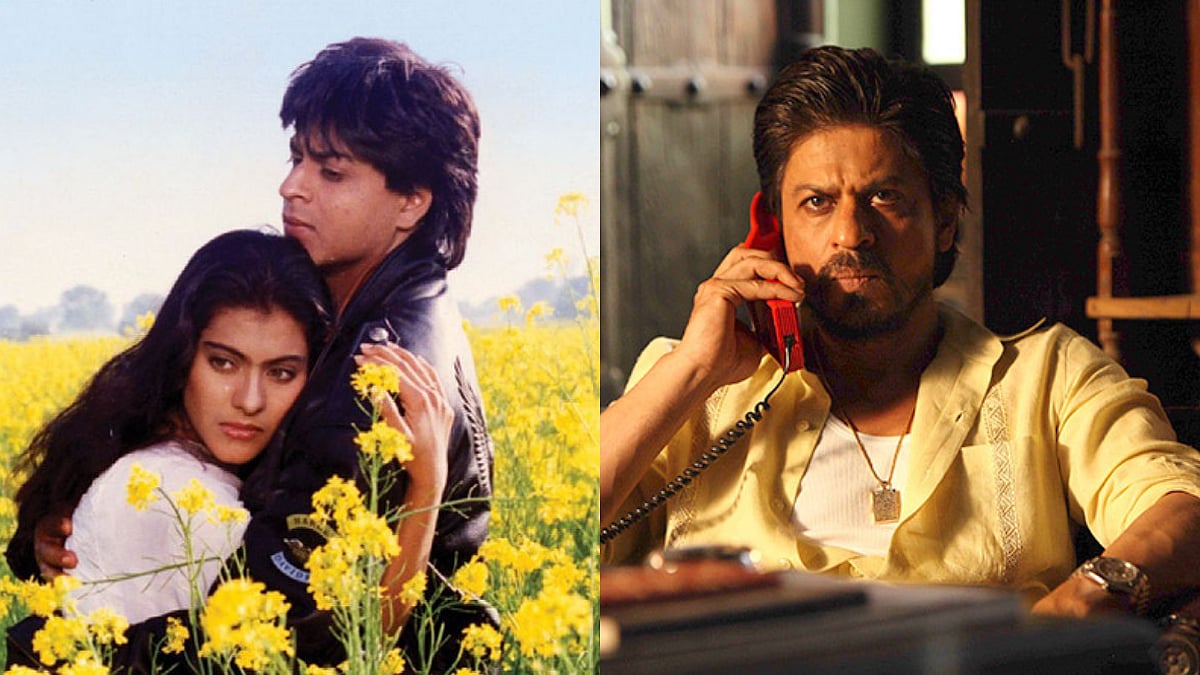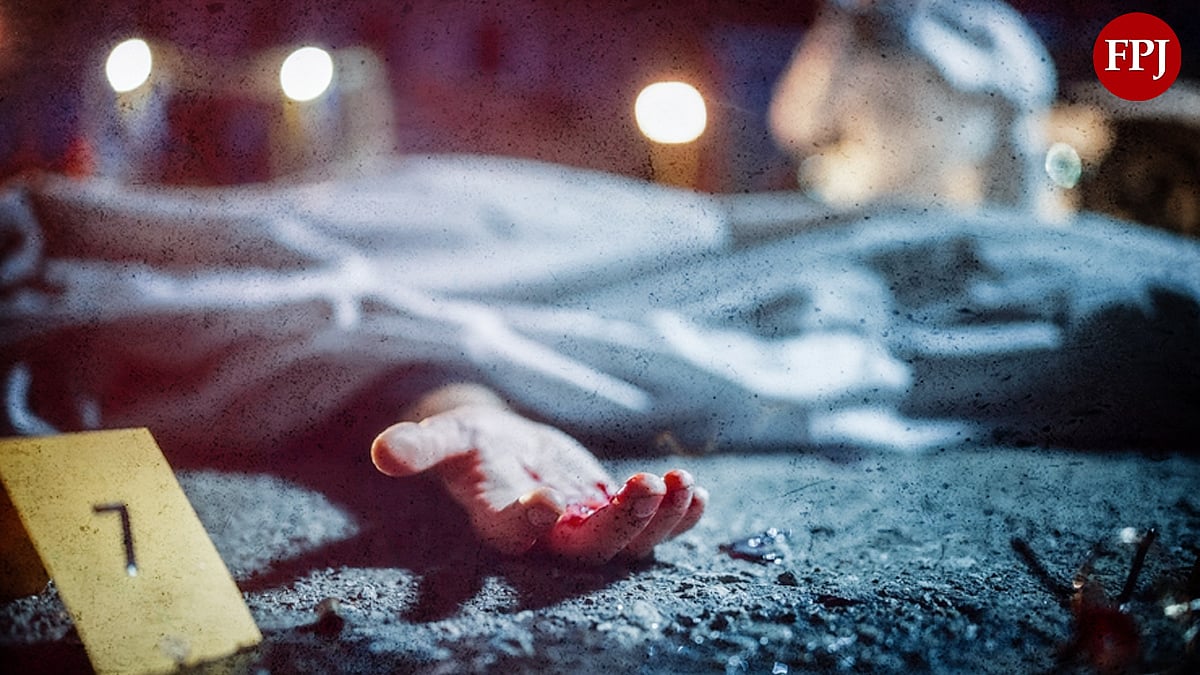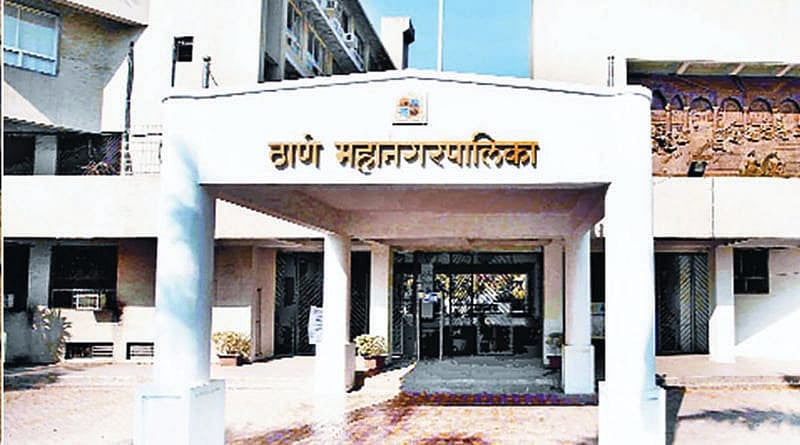For Shah Rukh Khan a film is not just an adventure in a make-believe world, it is a life lived. The story doesn’t end after two hours of screen time, he carries it in his head, and carries the characters in his heart, imagining Pardes’s Arjun and Ganga, stolid and responsible, have a couple of kids, he takes her to the movies occasionally, but is usually busy with recordings, and slowly, sedately, they slip into middle age instead of careening into it like Dilwale Dulhania Le Jayenge’s Raj and Simran who, growing old together, are still having a lot of fun.
Dad like his own in Kuch Kuch Hota Hai
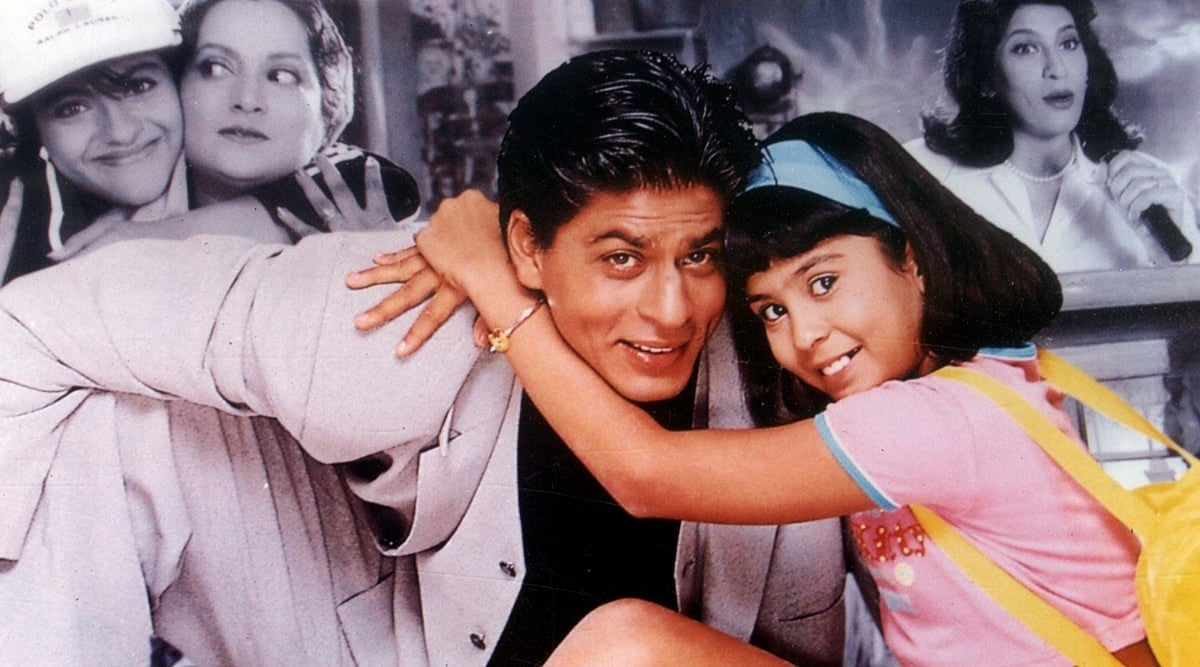
These were some of the scenarios we discussed, one afternoon in the late ’90s, when Mumbai was inundated with off-season showers, but Shah Rukh sitting pretty on top of the world, with Karan Johar’s Kuch Kuch Hota Hai, breaking box-office records. He played a father for the first time in this film, a 30-year-old single dad with a precocious eight-year-old daughter.
“In the scene where I am holding the newborn Anjali in my arms, I was reminded of Aryan’s entry into the world,” Shah Rukh confided, revealing that on the first day of the shoot at Mehboob Studio, he had learnt that wife Gauri was pregnant and he was still shooting when his son was born so he had lived through the process of being a father through the making of this film. However, he was quick to admit that Anjali’s daddy was very different from Aryan’s daddy. “Rahul reminded me of my dad. I don’t know if I was the ideal father, but the kids seem to love me in the film. And I know that’s the kind of daddy I’d want to be to Aryan,” he added.
Love story like his own in DDLJ
Raj in Dilwale Dulhania Le Jayenge (DDLJ) is loved not just by kids and youngsters, but their parents too despite flunking his exams, speeding on bikes at night with friends and grabbing cans of beer, even wooing a girl who is to wed another, perhaps because he refuses to elope with Simran despite her mother’s urging. And eventually, as he had told her, her father lets go of her hand, saying, “Ja Simran, ja, jee le apni zindagi” and she jumps into the train with Raj and his dad.
Shah Rukh himself had met Gauri in 1984, when they were still teenagers, in a Delhi nightclub. He was too shy to ask her for a dance, but staunchly stayed by her side through a long and rocky courtship, trying to convince her parents that despite being from another faith and a profession where fortunes were fickle, he was the right man for her. Finally, on October 25, 1991, he married his real life dulhania, with her parents’ blessings.
“Raj was a guy very much like me. My father had a name for such guys… harami. By that I don’t mean Raj wasn’t a bastard, just that he was badmash. My uncle was like that too,” he had shared.
Taweez of his own in Raees
Raees Khan was nothing like Shah Rukh, but there’s an iconic dialogue in the film, “Ammi jaan kehti thi, koi bhi dhanda chhota nahin hota aur dhande se bada koi dharam nahin hota” that reminded him of his own mother. He recalled her telling him never to cut his costs, to increase his income, and that’s why he doesn’t believe in letting people go even if the world has moved on and they have become outdated.
Even the taweez he wears in the film was one that had been in his family and given to him by his mother as a protective charm.
Self-belief like his own in Zero
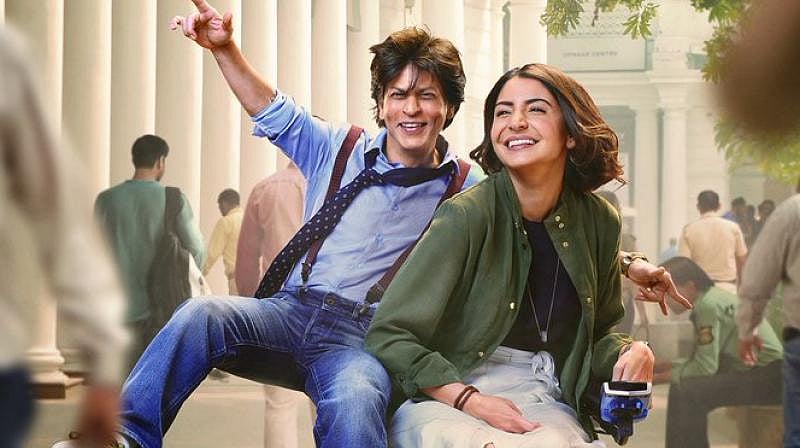
Again, there was nothing to connect him, even physically, to Zero’s four-foot Bauua Singh. But he liked the fact that despite this 'shortcoming', the character didn’t give a damn what the world thought of him.
In the course of an interview, he had flasbacked to when his mother wanted him to become an actor. He had started doing theatre by then, but three-four people from Mumbai, whom they knew well, told her that Shah Rukh wasn’t good-looking enough. “She was hurt, but it didn’t bother me because all I wanted to do was act and I assured her “main kaam karta rahunga (I will keep working),’” he reminisced.
Today, Shah Rukh Khan isn’t just an actor, this year he won the National Award for ‘Best Actor’ for a double role in a blockbuster, Jawaan. He had once told me that he would never do a film for any other reason other than that it made him happy. “Unless I’m happy, how can I make the audience happy,” he reasoned. And that one sentence sums up why at 60 he remains the Badshah of Bollywood.
